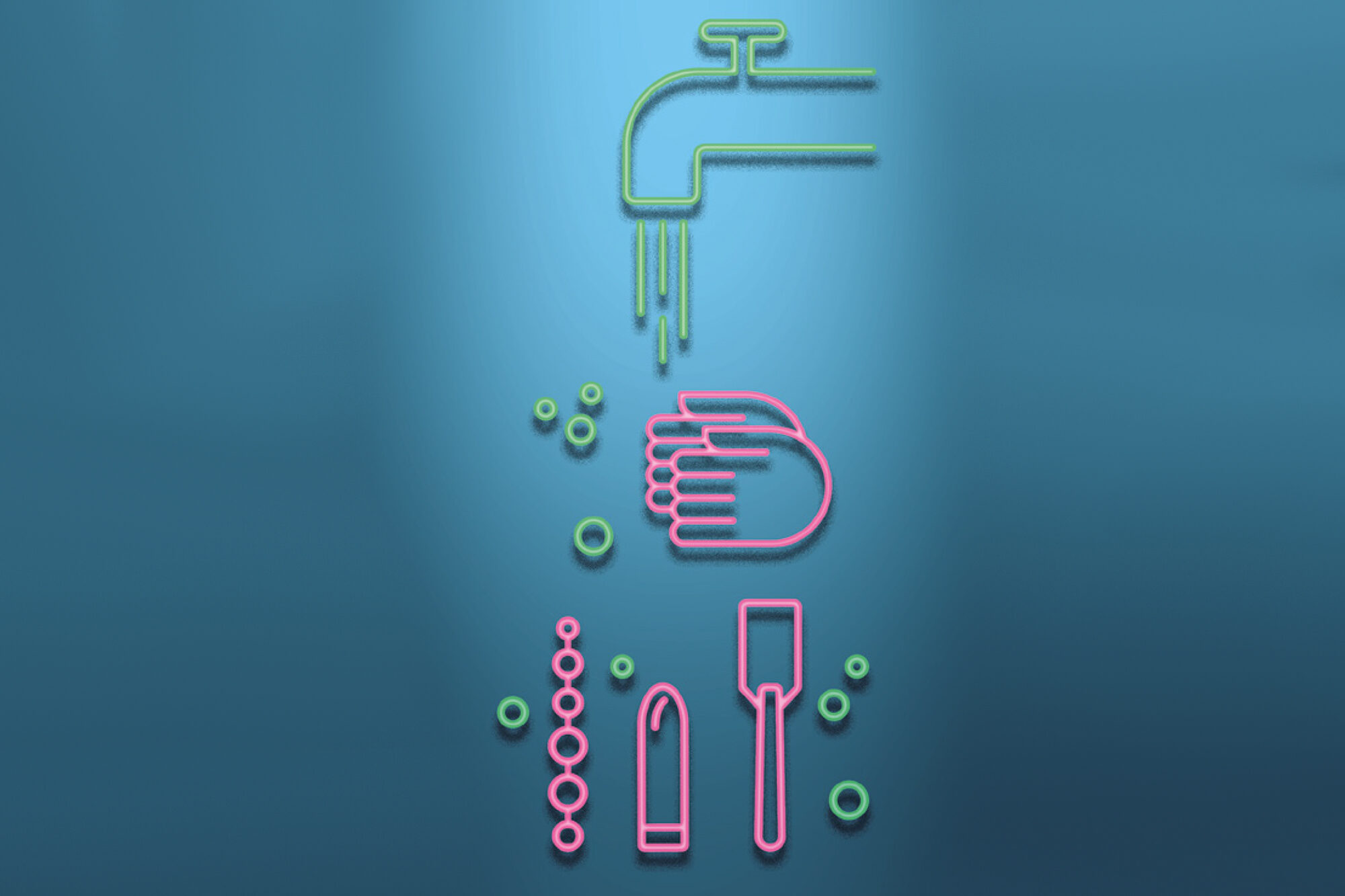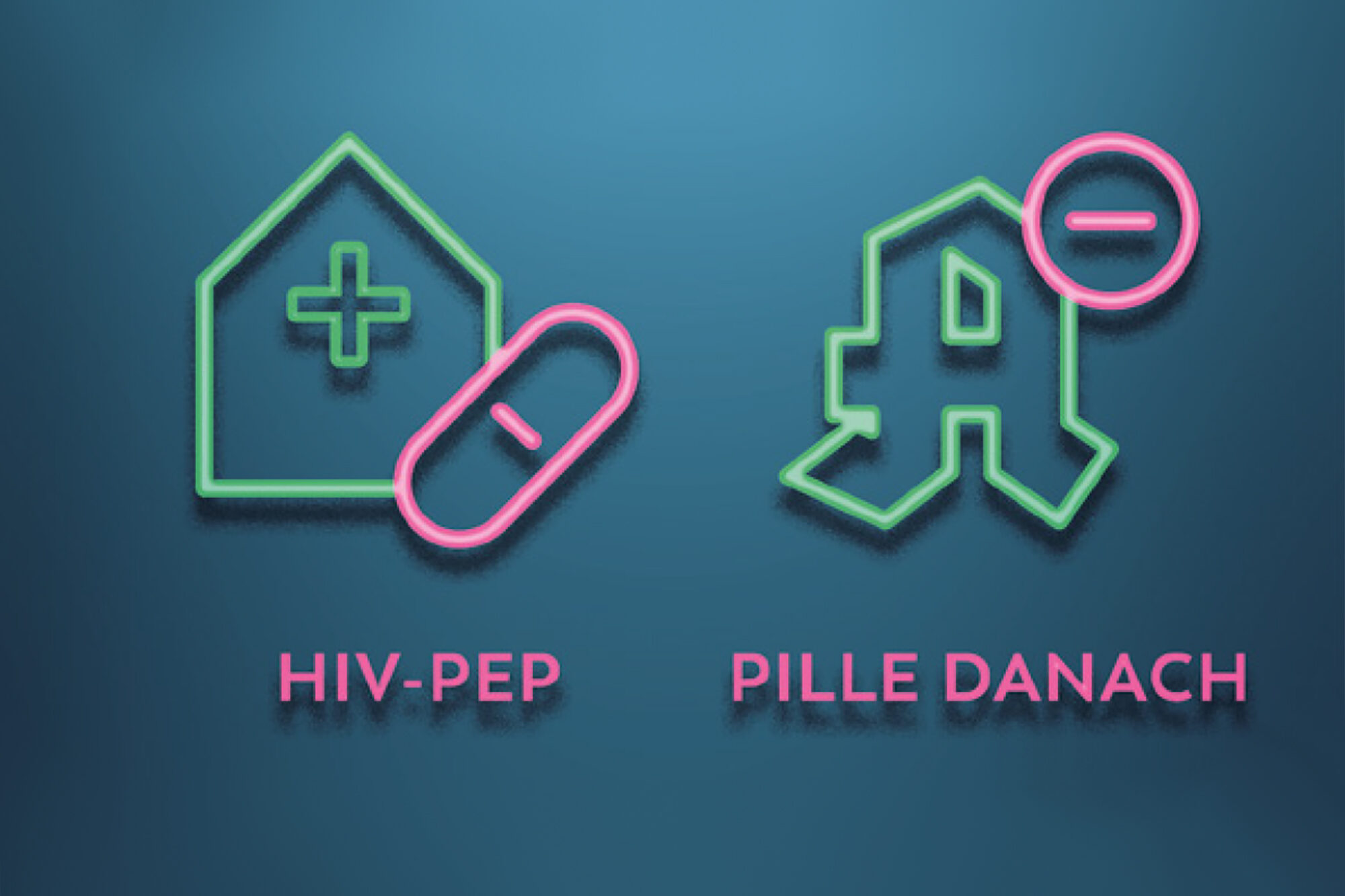Protecting yourself from sexually transmitted infections

A key aspect of working professionally as a sex worker involves protecting your own body. Having unprotected sex can lead to transmissions with HIV, hepatitis and other sexually transmitted infections. These can have serious consequences if left untreated.
Condoms and femidoms (internal condoms) can protect you against HIV. They can also reduce the risk of getting other sexually transmitted infections. Yet, no method is 100% effective because in some cases, these germs are highly transmissible, i.e. hepatitis B and herpes viruses, which can also be transmitted via kissing.
It is therefore equally important to ensure you have regular check-ups with a doctor, so that any sexually transmitted infection can be diagnosed and treated as early as possible. Getting tested regularly is also important because not all sexually transmitted infections cause symptoms, or symptoms can often go unnoticed.
Getting tested and treated for any sexually transmitted infection does not only protect your own health, but also prevents passing the germs on to others, and, in some cases, can prevent a cycle of back-and-forth re-infection.
Within sex work, protection means:
- Always use a condom or femidom during anal/vaginal sex; blowjobs should always be given with a condom.
- Never allow blood (including menstrual blood) or sperm to get into your mouth, eyes, vagina/anus (or any other orifice) or onto open skin (e.g. due to herpes ulcers).
Below we have included some specific information on main sex practices:
During VAGINAL AND ANAL INTERCOURSE you may contract HIV, if you do not use protective measures (condoms/femidoms, PrEP, treatment as prevention – TasP).
Sperm, vaginal fluids and menstrual blood of people with an untreated HIV infection can contain a huge viral load. The mucous membranes in the rectum, cervix and vagina are very sensitive and can easily take in the HIV virus (even if ejaculation does not occur inside the body); the same is true of the head of the penis.
As the vaginal and intestinal mucosa (the moist tissue) can also contain a big viral load, there is also a risk for an HIV infection for the penetrating partner (“top”, or “active” partner).
In cases of untreated HIV infections, the presence of other sexually transmitted infections, such as syphilis, gonorrhoea or chlamydia, increase the risk of transmitting HIV, because the inflamed tissues (mucous membranes) make it easier for HIV to either enter or leave the body. Condoms/femidoms protect against HIV in all cases and reduce the risk of infections with hepatitis or other sexually transmitted infections.
During LICKING OR SUCKING THE PENIS (“BLOWJOBS”) there is a very low risk of HIV transmission if sperm gets into the mouth. The oral mucosa is very stable, and saliva dilutes any fluids containing viruses. Sperm does not remain in the mouth for as long as it would remain in the vagina or the rectum. There are only very few known cases of HIV infection caused by oral sex worldwide. Blowjobs, however, may lead to other sexually transmitted infections, such as hepatitis. Condoms also provide protection when giving blowjobs.
There is a very low risk of an HIV infection when LICKING THE VULVA (“cunnilingus”, “eating someone out”) even if menstrual blood gets into the mouth. The oral mucosa is very robust. When licking the vulva, only a small amount of blood gets into the mouth and is further diluted by saliva. The viral load of vaginal fluid is too low to transmit HIV from licking the vulva. It is, however, easy to get infected with other sexually transmitted infections. “Dental dams”, also called rubber dams, can protect you when performing cunnilingus.
During S/M PRACTICES (sado-masochism), you should prevent any blood, sperm, or body secretions (faeces and urine) from coming into contact with mucous membranes or any other exposed areas in order to prevent sexually transmitted infections, including HIV. Items that can cause injuries including bleeding (e.g. whips or bondage) must only be used for one individual, or else be washed very carefully with soap and water before using them with others.
SEX PRACTICES INVOLVING URINE AND FAECES (poo, i.e. scat) are safe regarding HIV. However, it is easy to become infected with hepatitis or intestinal parasites, if urine or faeces get onto exposed areas of skin or mucous membranes. After scat play (i.e. sex involving poo), make sure you do not touch your mouth with your hands until they have been thoroughly washed; do not swallow urine. Sex workers who offer services involving urine and faeces should ensure they are vaccinated against hepatitis A and B.
DILDOS AND OTHER SEX TOYS are safe if they are only used by/for one person. If multiple individuals are involved during sex, wash dildos and other sex toys thoroughly with soap and water before using them with a new person each and every time. Apply a new condom over the sex toy between uses – if you don’t, germs can be transferred from one orifice to another. Wash hands thoroughly after any contact with used toys/condoms: otherwise, germs can get into your mouth from contact with your fingers.
When KISSING, including intense tongue kissing, you cannot get infected with HIV; you can, however, get other sexually-transmitted diseases such as herpes or hepatitis B.

What should I do if I have an “accident” at work?
There is always a chance that a condom can tear or simply be forgotten. If this happens, keep calm and make sure you take the proper steps: if someone has ejaculated inside you, first go to the toilet and try to urinate. Sperm can be squeezed out from the vagina or colon by pushing gently. After an accident with a condom, do not attempt to douche (i.e. wash out) the vagina or anus, as you will only be pushing the sperm further into the body. You can also cause minor injuries (i.e. tears), which increase the risk of contracting HIV, as well as infections by other germs. The longer the sperm spends inside the vagina, the greater the risk of an unwanted pregnancy.
If you get sperm into your eyes during sex, flush your eyes with plenty of water as quickly as possible.
If you get sperm in your mouth, simply spit the sperm out immediately and rinse the mouth with water several times. The mucous membranes in the mouth are very robust, so the risk of contracting HIV is very low. Do not brush your teeth or use alcohol-based mouthwash! This can lead to small injuries and increase the risk of infection. If you have swallowed sperm, DO NOT try to vomit. Vomiting can result in injuries, increasing your risk of contracting infections.
If you are at an increased risk of contracting an infection, e.g. because your client is HIV-positive and is not being treated, a four-week treatment with HIV medication may be beneficial. This needs to be discussed in all cases with experienced doctors.
Make sure to find out in advance where you can get HIV-PEP, e.g. at an Aidshilfe (AIDS service organization) near you (see Information, advice, and support) or go to kompass.hiv (Kategorien > PEP-Stelle) and aidshilfe.de/pep.
As a rule of thumb: The safest way to prevent pregnancy is to use a second contraceptive (e.g. diaphragm, or the “mini pill”) in addition to condoms.
